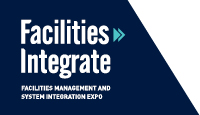Personalised temperature and lighting controlled by "smart" wireless networks, private videoconferencing rooms for remote workers to connect with colleagues based in offices - the future is here when it comes to workplace technology.
This bold new world will be explored in depth at Facilities Integrate, a trade exhibition for the facilities management and system integration industries in Auckland next week.
The exhibition will include a range of top speakers, Tech World (a hub for the latest trends in technology), exhibitors with products from AC accessories to solar energy, and the Spotless Seminar Series showcasing the latest trends within the industry.
While it's almost impossible to predict where technology will take our working lives in the future, there's no doubt the bricks and mortar that house our workspaces needs to catch up with ever evolving technology.
Retrofitting ageing spaces can seem like a costly and time-consuming business, but those who make the effort testify to the rewards.
Christopher Orsega, an architect based in San Francisco who has overseen the retrofitting of many spaces in Silicon Valley, will be a keynote speaker at Facilities Integrate and is passionate about working with older buildings.
"There is something quite exhilarating when we have the opportunity to design projects that breathe new life into old spaces," he says.
"By working within an existing shell, there is a tremendous reduction in the natural resources required to build out a space. So in that regard, it can be one of the most environmentally responsible and resource-efficient strategies available to us."
He says much of New Zealand's built environment isn't fit for life in the decades ahead. When it comes to office space, Orsega believes investing in future-proof infrastructure now will be a cost saving move in the long term.
"Infrastructure is only expensive if you don't invest in it upfront," he says. "We encourage our clients to invest in technology with the same long-term view with which we approach the design of our spaces: Invest in the roots, trunk and branches of the tree. Don't invest in the leaves."
As an architect Orsega says he is committed to repurposing older spaces with fast-evolving technology in mind: "Many architects and designers talk about building 'flexibility' into their designs to accommodate future technology, but that flexibility can take on many forms."
He says in an ideal scenario, the arrangement of power and data networks, lighting, and mechanical systems will harmoniously integrate into a workplace's spatial arrangement.
"Since technology evolves more rapidly than the physical spaces we build, we try to develop an organisational logic that anticipates change."
San Francisco has many of the same issues when it comes to building as New Zealand. Orsega says technical hurdles around building codes can be an issue with older buildings.
"Many of our older buildings don't comply with current standards for universal accessibility, some of our buildings require abatement of hazardous materials such as asbestos, and seismic upgrades can be required to bring older buildings up to current structural standards," he says.
But he believes all of these hurdles can be overcome; for him the key issue is developing a design concept that transforms the existing building in a purposeful way, that is specifically tailored to the identity of the client.
"But that's an incredibly gratifying and rewarding challenge!"
Alongside Orsega will be a wide range of other speakers, including Roger Dennis, expert on foresight, strategy an innovation and Roy Arindam of BuildingIQ, whose main area of interest is clean technology space especially in the energy efficiency and energy storage business.
Facilities Integrate will take place on September 27-28 at ASB Showgrounds from 10am-5pm. For more information and to register for free entry, please click here.

